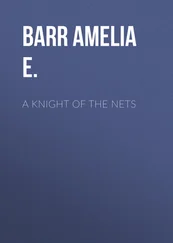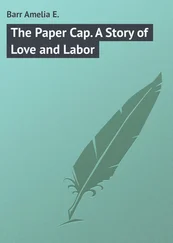Amelia Barr - A Daughter of Fife
Здесь есть возможность читать онлайн «Amelia Barr - A Daughter of Fife» — ознакомительный отрывок электронной книги совершенно бесплатно, а после прочтения отрывка купить полную версию. В некоторых случаях можно слушать аудио, скачать через торрент в формате fb2 и присутствует краткое содержание. Жанр: foreign_prose, foreign_antique, на английском языке. Описание произведения, (предисловие) а так же отзывы посетителей доступны на портале библиотеки ЛибКат.
- Название:A Daughter of Fife
- Автор:
- Жанр:
- Год:неизвестен
- ISBN:нет данных
- Рейтинг книги:4 / 5. Голосов: 1
-
Избранное:Добавить в избранное
- Отзывы:
-
Ваша оценка:
- 80
- 1
- 2
- 3
- 4
- 5
A Daughter of Fife: краткое содержание, описание и аннотация
Предлагаем к чтению аннотацию, описание, краткое содержание или предисловие (зависит от того, что написал сам автор книги «A Daughter of Fife»). Если вы не нашли необходимую информацию о книге — напишите в комментариях, мы постараемся отыскать её.
A Daughter of Fife — читать онлайн ознакомительный отрывок
Ниже представлен текст книги, разбитый по страницам. Система сохранения места последней прочитанной страницы, позволяет с удобством читать онлайн бесплатно книгу «A Daughter of Fife», без необходимости каждый раз заново искать на чём Вы остановились. Поставьте закладку, и сможете в любой момент перейти на страницу, на которой закончили чтение.
Интервал:
Закладка:
"Have you nothing to say, sir?" he asked. "A good wife and an old and honorable estate are worth a few words of acknowledgment."
"I do not wish to marry Drumloch, sir." John Campbell turned white, and the paper in his hand shook violently. "Do you mean me to understand that I have been working ten years for a disappointment? I will not have ten Years of my life wasted to pleasure a foolish youth."
"Is it right for me to marry a woman I do not love, and so waste my whole life?"
A conversation begun in such a spirit was not likely to end satisfactorily. Indeed it closed in great anger, and the renewal of the subject day after day, only made both men more determined to stand by the position they had taken toward each other. Allan almost wondered at his own obstinacy. Before his father had so broadly stated the case to him, he had rather liked his cousin. She was a calm, cheerful, sensible girl, with very beautiful eyes, and that caressing, thoughtful manner which is so comfortable in household life. He believed that if he had been left any freedom of choice, he would have desired only Mary Campbell to be his wife. But he told himself that he would not be ordered into matrimony, or compelled to sacrifice his right of choice, for any number of dead-and-gone Campbells.
There was no prospect of any reconciliation between father and son, except by Allan's unconditional surrender. Allan did not regard this step as impossible in the future, but for the present he knew it was. He decided to leave home for a few months, and when the subject was opened again to be himself the person to move the question. He felt that in the matter of his own marriage he ought at least to make the proposition; it was enough for his father to agree to it. The trouble had arisen from the reversal of this natural order.
Mary had perceived that there was dissension between her uncle and cousin, but she had not associated herself with it. She was sure that it was about money, for evidently Allan had lived an extravagant life when he was abroad. So, when he said to her one morning, "Mary, father and I cannot agree at present, and I think I will go away for a few weeks;" she answered,—
"I think you are right, Allan. If one has a hurt, it does not do to be always looking at it, and touching it. If you have a quarrel with uncle, let it rest, and then it will heal. Do you want—any money, Cousin Allan? I have plenty, and I do not use it."
She spoke shyly with hesitation and blushes, but he felt all the kindness of the question. He took her hand and kissed it. At that moment she looked lovely to him.
"I have no need of money, Mary. I only ask for your kind remembrance."
"That is ever yours. Do not go far away."
"Not far. You shall hear from me soon."
The thought of a correspondence struck him very pleasantly. He might thus—if he liked the idea upon future reflection—arrange the whole matter with Mary, and return home as her expected husband. That would be a sufficient assertion of his own individuality.
He went to Edinburgh. He had no definite plan, only that he felt a desire for seclusion, and he knew fewer people in Edinburgh than in Glasgow or London. The day after his arrival there he accompanied a casual acquaintance to Leith pier, from which place the latter was going to sail for London. As he stood watching the vessel away, his hat blew off and a fisherman brought it back to him. It was Will Johnson of Pittenloch, and he was not a man to whom Allan felt he could offer money. But he stood talking with him about the Fife fishing towns, until he became intensely interested in their life. "I want to see them," he said to Will; "let me have a couple of hours to get my trunks, and I will go with you to Pittenloch."
There are very few men who have not a native longing for the ocean; who do not love to go
"–back to the great, sweet Mother,
Mother and lover of men, the sea;"
and Allan forgot all his annoyances, as soon as he felt the bound of the boat under him. Johnson had to touch at Largo, but ere they reached it the wind rose, and it was with some difficulty the harbor was made. But during the rough journey Allan got very near to the men in the boat; he looked forward to a stay at Pittenloch with pleasure; and afterward, events would doubtless shape themselves better than he could at that time determine them.
It had been a sudden decision, and made very much in that spirit which leads men to toss up a penny for an oracle. And sometimes it seems as if a Fate, wise or otherwise, answers the call so recklessly made. If he lived for a century Allan knew that he would never forget that first walk to Promoters—the big fisherman at his side, the ocean roaring in his ears, the lights from the cottage windows dully gleaming through the black darkness—never forget that moment in which Maggie Promoter turned from the fire with the "cruisie" in her hand, the very incarnation of womanhood, crowned with perfect health and splendid beauty.
It was Allan's nature to drift with events, and to easily accommodate himself to circumstances. In France he had been a gay, fashionable trifler; in Germany cloudy philosophies and musical ideas had fascinated him; in Rome he had dreamed in old temples, and painted and smoked with the artists in their lofty shabby studios. He was equally ready to share the stirring danger and freedom of the fisher's life, for he was yet young enough to feel delight in physical exertion, and in physical danger.
When the boat went hammering through cheerless seas, and the lines were heavy with great ling fish, it was pleasure to match his young supple thews with those of the strongest men. And it was pleasure, when hungry and weary, to turn shoreward, and feel the smell of the peat smoke on the south-west wind, bringing the cottage hearth, and the welcome meal, and the beautiful face of Maggie Promoter nearer. Even when the weather was stormy, and it was a hurl down one sea, and a hoist up the next, when the forty foot mast had to be lowered and lashed down, and the heavy mizzen set in its place, Allan soon grew to enjoy the tumult and the fight, and his hand was always ready to do its share.
Very soon after going to the Promoters he procured himself some suits of fishers' clothing; and Maggie often thought when he came in from the sea, rosy and glowing, with his brown hair wet with the spindrift, nets on his shoulders, or lines in his hands, that he was the handsomest fisher-lad that ever sailed the Frith of Forth. David and Allan were much together, for David had gone back to the boats as the minister bade him, yet the duty had been made far easier than he expected. For when Allan understood how the Promoters' boat had failed them, he purchased a fishing skiff of his own, and David, and the men whom David hired, sailed her for her owner. David had his certain wage, the men had the fish, and Allan had a delight in the whole situation far greater than any mere pleasure yacht could possibly have given him.
Where there is plenty of money, events do not lag. In a couple of months the Promoters' cottage was apparently as settled to its new life as ever it had been to the old one. The "Allan Campbell" was a recognized craft in the fishing fleet, and generally Allan sailed with her as faithfully as if his life depended upon the catching of the gray fish. And when the sea-mood was not on him, he had another all-sufficing occupation. For he was a good amateur painter, and he was surrounded by studies almost irresistible to an artistic soul.
The simple folk of Pittenloch looked dubiously at him when he stood before his easel. There was to them something wonderful, mysterious, almost uncanny, in the life-like reproduction of themselves and their boats, their bits of cottages, and their bare-footed bairns—in the painted glimpses of the broad-billowed ocean; and the desolate old hills, with such forlorn lights on their scarps, as the gloom of primeval tempests might have cast.
Читать дальшеИнтервал:
Закладка:
Похожие книги на «A Daughter of Fife»
Представляем Вашему вниманию похожие книги на «A Daughter of Fife» списком для выбора. Мы отобрали схожую по названию и смыслу литературу в надежде предоставить читателям больше вариантов отыскать новые, интересные, ещё непрочитанные произведения.
Обсуждение, отзывы о книге «A Daughter of Fife» и просто собственные мнения читателей. Оставьте ваши комментарии, напишите, что Вы думаете о произведении, его смысле или главных героях. Укажите что конкретно понравилось, а что нет, и почему Вы так считаете.












